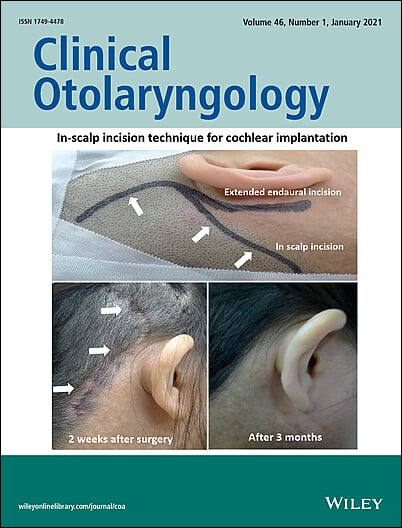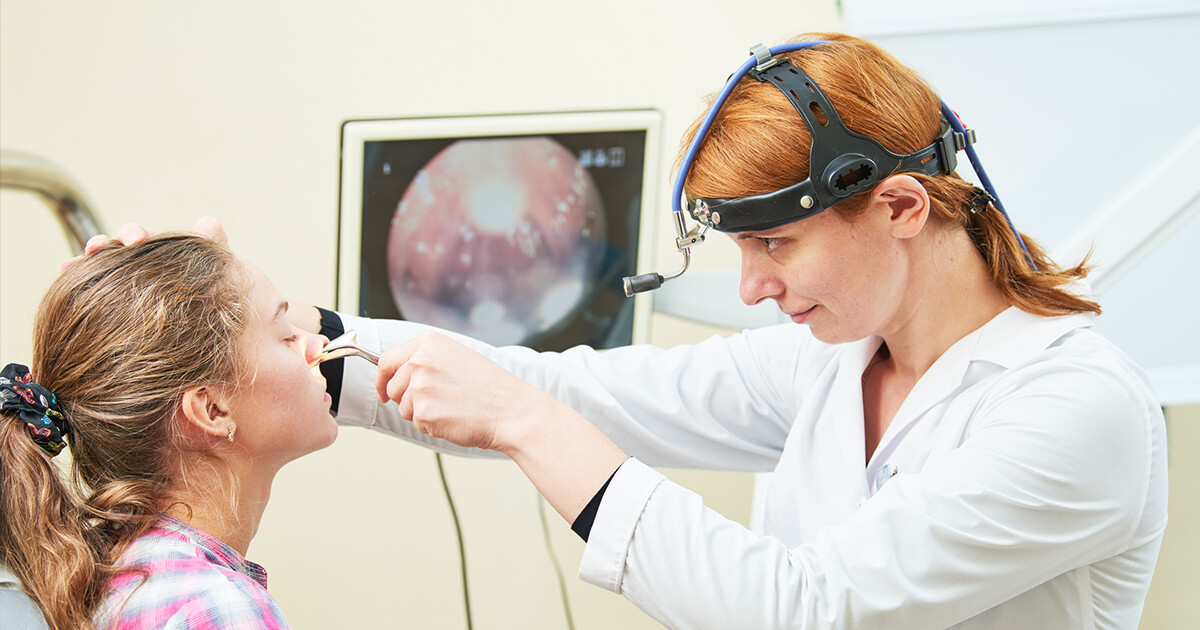Exploring the Field of Otolaryngology: What to Anticipate When You Seek Advice From an ENT
Otolaryngology, generally referred to as ENT, encompasses the medical diagnosis and therapy of throat, ear, and nose disorders. For those experiencing relevant issues, seeking advice from an ENT specialist can offer clearness and relief. Understanding what to expect throughout such assessments is vital for effective interaction and care. This overview will lay out crucial aspects of the ENT experience, consisting of typical reasons for sees and the processes associated with medical diagnosis and treatment.

Understanding Otolaryngology: An Introduction
Otolaryngology, frequently described as ENT (Ear, throat, and nose) medication, is a specialized branch of medicine that concentrates on the diagnosis and therapy of problems influencing these vital locations of the human body. This area incorporates a large range of problems, including those pertaining to hearing, balance, respiratory system feature, and speech. Otolaryngologists are trained to manage both surgical and clinical therapies, using innovative strategies and modern technologies. Their know-how expands beyond typical ailments, dealing with issues such as allergic reactions, sinus infections, and hearing loss. Furthermore, they play a critical duty in the monitoring of head and neck cancers cells, offering complete treatment tailored to specific client requirements. Overall, otolaryngology stays necessary for preserving health and quality of life in damaged people.
Common Factors to See an ENT Professional
Several individuals look for the proficiency of an ENT specialist for a range of reasons, reflecting the diverse nature of problems that influence the nose, ear, and throat. Typical concerns include chronic sinus problems, which usually causes relentless nasal congestion and facial pain. Allergic reactions and their associated signs, such as sneezing and itching, also trigger check outs to these experts (ENT). Hearing loss, whether abrupt or gradual, is another significant factor for appointment. On top of that, people may seek assessment for throat problems, consisting of persistent hoarseness or swallowing troubles. Sleep apnea, characterized by disrupted breathing during rest, is frequently attended to by ENT professionals. Each of these conditions highlights the value of specialized care in managing complex ENT-related health concerns
Planning for Your ENT Visit
When planning for an ENT consultation, it is vital to collect pertinent info and consider any particular concerns. People must assemble an in-depth clinical history, consisting of previous ear, nose, or throat issues, surgical procedures, and current medicines. Documenting signs-- such as frequency, seriousness, and duration-- can offer useful insights for the ENT expert. Furthermore, people ought to prepare a checklist of concerns they wish to ask, guaranteeing that all concerns are dealt with during the go to. Bringing along any type of appropriate medical records or examination results can better help the ENT in comprehending the individual's condition. Lastly, individuals need to confirm their appointment details, consisting of day, time, and area, to minimize any type of last-minute complication. Correct prep work can enhance the effectiveness of the examination and bring about far better results.
What to Expect Throughout the Assessment
As the examination begins, the individual can anticipate to take part in an extensive conversation with the ENT professional regarding their signs and clinical background. The specialist will ask about the period, regularity, and severity of signs and symptoms such as hearing loss, nasal blockage, or sore throat. Furthermore, the client's previous medical problems, drugs, and any kind of pertinent household history will be examined, assisting the expert in developing a total understanding of the client's health. The ENT may likewise inquire about lifestyle factors, such as exposure to irritants or allergens. This open discussion establishes a structure for the appointment, making certain that the client's concerns are addressed and establishing the stage for any necessary evaluations or referrals for therapy.
Analysis Examinations and Procedures in Otolaryngology
A series of diagnostic examinations and procedures are vital in otolaryngology to precisely examine and diagnose conditions affecting the ear, throat, and nose. Usual tests include audiometry, which gauges hearing function, and tympanometry, examining center ear stress. Nasal endoscopy allows visualization of the nasal passages and sinuses, while laryngoscopy examines the throat and vocal cables. Imaging strategies, such as CT scans and MRIs, offer detailed views of head and neck frameworks. Allergy testing might also be carried out to determine triggers for sinus or breathing issues. These analysis tools make it possible for ENT specialists to establish an extensive understanding of individuals' problems, ensuring tailored and effective monitoring plans. Proper diagnosis is essential for successful therapy end results in otolaryngology.
Treatment Alternatives Offered by ENT Specialists
ENT specialists offer a range of therapy alternatives tailored to deal with certain conditions affecting the nose, throat, and ear. These therapies range from traditional methods, such as medicine and lifestyle alterations, to more invasive treatments. Allergic reactions might be taken care of with antihistamines or immunotherapy, while chronic sinusitis may call for nasal corticosteroids or sinus surgical procedure. For hearing loss, ENT professionals often advise hearing help or surgical treatments like cochlear implants. In cases of throat problems, alternatives can include speech therapy or procedures to eliminate obstructions. Additionally, they may provide advice for handling sleep apnea, including making use of CPAP tools or medical interventions. In general, the goal is to improve patients' lifestyle via individualized care and effective therapy strategies.
When to Seek Follow-Up Care With an ENT
Recognizing her latest blog when to seek follow-up care with an ENT specialist is essential for taking care of recurring signs and symptoms or problems related to nose, ear, and throat conditions. People ought to take into consideration setting up a follow-up consultation if signs and symptoms continue regardless of first treatment, such as chronic ear pain, nasal blockage, or throat discomfort. Changes in hearing, equilibrium problems, or uncommon nasal discharge may also necessitate more analysis. In addition, if visit the website an individual experiences side impacts from suggested drugs or has undergone an operation, follow-up care is necessary to keep an eye on recuperation and address any type of issues. Timely examinations can guarantee reliable administration of conditions, prevent prospective complications, and supply comfort relating to one's health and wellness. Seeking follow-up treatment promotes proactive health management in otolaryngology.
Regularly Asked Inquiries

What Certifications Should I Search for in an ENT Expert?
When seeking an ENT expert, one should try to find board certification, appropriate experience, and strong person reviews. In addition, efficient communication skills and a compassionate technique can considerably improve the overall treatment experience.
Exactly how Do I Select the Right ENT for My Demands?
Choosing the ideal ENT expert includes assessing their credentials, experience, and patient evaluations (Sinus). It is vital to consider their communication design and approach to treatment, guaranteeing they straighten with the person's certain health and wellness demands and choices
Exist Any Type Of Threats Associated With ENT Procedures?
The threats related to ENT procedures might include infection, blood loss, anesthesia difficulties, and potential damage to bordering frameworks. People ought to talk about these risks with their doctor to comprehend specific problems and assurance informed decisions.
Just How Can I Take Care Of Anxiety Prior To My ENT Consultation?
To take care of anxiousness before a visit, people can exercise deep breathing exercises, imagine positive end results, prepare questions beforehand, and look for support from buddies or family, promoting a feeling of peace of mind and calmness.
What Should I Do if I Experience Negative Effects From Therapy?
If adverse effects from therapy happen, the person must immediately report them to their healthcare provider. Adjustments to therapy or extra treatments might be needed to her latest blog ensure security and performance in handling their problem - Otorrinolaringologia. As the examination starts, the client can expect to involve in a thorough conversation with the ENT expert concerning their signs and symptoms and clinical history. These analysis devices allow ENT experts to create a complete understanding of individuals' conditions, ensuring customized and reliable monitoring strategies. ENT professionals offer a range of treatment choices customized to resolve details conditions influencing the nose, throat, and ear. When looking for an ENT expert, one need to look for board qualification, appropriate experience, and solid individual evaluations. Picking the appropriate ENT professional involves assessing their certifications, experience, and patient reviews
Comments on “What to Expect at Your Otolaryngologist Visit in Diagnosing Complex Head and Neck Conditions”